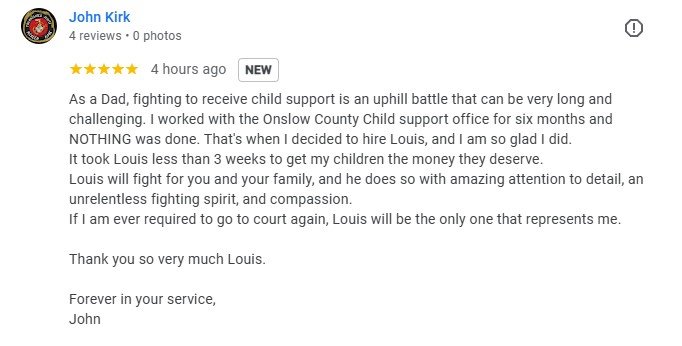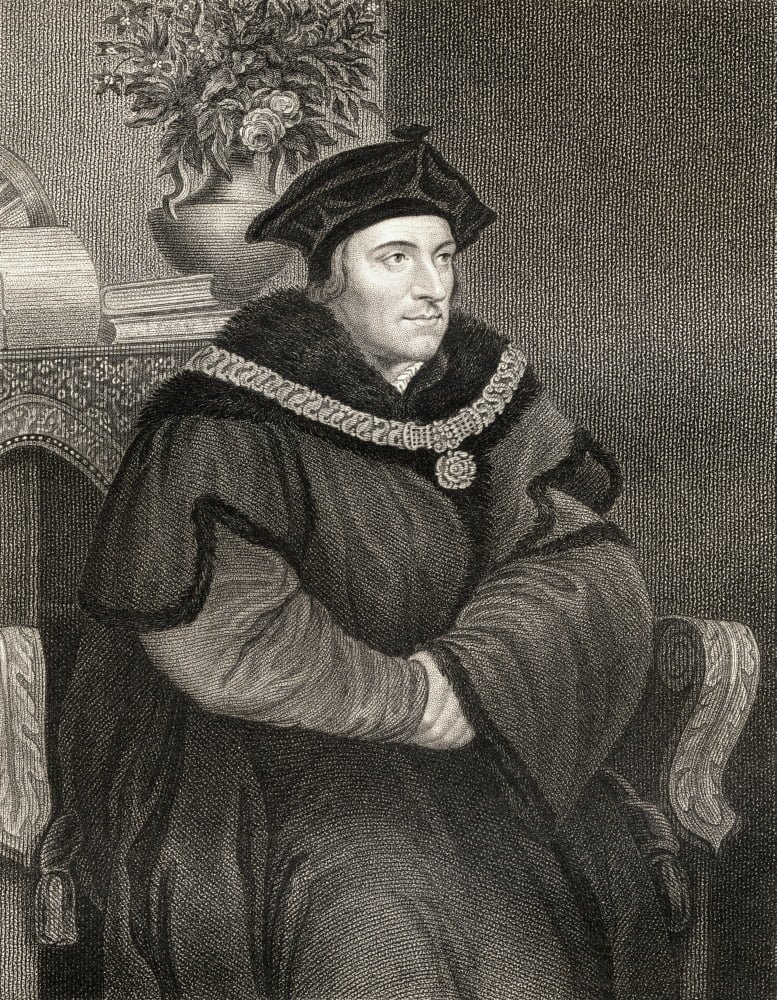Fristensky Law, PLLC is a full-service firm focused on domestic litigation and criminal defense in Onslow County, North Carolina. Founding attorney Louis Fristensky is a trial lawyer handling divorce, child custody, child support, alimony and post-separation support, equitable distribution (property division), domestic violence protective orders, and related criminal and civil matters. Your first consultation is always free, and financing is available through LawPay. Schedule an appointment or read on to learn about Mr. Fristensky’s core principles of communication, competency, and collaboration.
Court Appointed Clients
Indigent Defense
Parent Defender
Court Appointed Clients Indigent Defense Parent Defender
Attention! If Louis Fristensky has been appointed to represent you in court, please take a moment to contact him, book an appointment, and upload any relevant court documentation. It is important that Mr. Fristensky learn as much about your case as possible before the next hearing, which is likely fast approaching.
Onslow County Trusts Fristensky Law









Options for Representation
Tier 1
Hourly
Most Accurate
Most
Popular
Tier 2
Subscription
Pay One
Rate Monthly
Tier 3
Payments
30% down
10% monthly
Areas of Practice
Attorney Louis Fristensky is competent to represent clients in the following areas of law:
Divorce: Assisting clients by guiding them through the legal process of ending a marriage.
Divorce from Bed and Board: Useful when a spouse refuses to separate and leave the marital residence.
Emergency Custody: Determining if an emergency justifies the immediate removal of children or suspension of visitation.
Child Custody and Visitation: Helping parties navigate current custody arrangements, whether joint, sole, primary, or secondary, negotiating visitation schedules, and representing clients at custody hearings when parties cannot come to an agreement.
Child Support: Ensuring that the financial needs of children are met by both parents according to state guidelines.
Alimony/Spousal Support: Determining if alimony or post separation support is appropriate and how much should be paid.
Property Division: Assisting in the division of marital assets and debts in a fair and equitable manner.
Adoption: Helping families adopt children.
Domestic Violence: Obtaining or defending against requests for protective orders.
Separation Agreements: Drafting agreements to assert marital rights when divorce is imminent.
Abuse / Neglect / Dependency: Defending parents against allegations of abuse, neglect, or dependency made by the Department of Social Services. Helping to reunify parents with children removed by child protection services.
Paternity: Helping to establish or dispute the parentage of a child, which can affect custody, child support, and inheritance.
Grandparent Rights: Getting grandparents the visitation they deserve with their grandchildren.
Title IX: Working with students accused of sexual harassment or misconduct.
Termination of Parental Rights: Terminating the rights of absent parents.
Contempt and Show Cause: Helping to prosecute or defend against allegations of civil or criminal contempt.
Criminal Misdemeanor: Working with the district attorney to negotiate resolutions in criminal misdemeanor cases, or in the alternative, developing effective strategies of defense when representing defendants at trial.
Alienation of Affection: Representation in the hopes of receiving a monetary judgment against the adulterer who caused you emotional pain and suffering.
50C No Contact Orders: Acquiring no contact orders or defending against false allegations to acquire same.
Defamation and Libel: Fighting against false allegations made public with the intent of destroying reputations.
Responsible Individual List: Helping keep innocent persons of an agency blacklist.
Remember that each case is unique and requires a thorough review of the facts. It is important to consult with an attorney to understand the legal options and strategies available. Fristensky Law, PLLC provides free consults.

Louis Fristensky earned an Associate’s Degree in Paralegal Studies from Edison State College in Fort Myers, Florida. He went on to receive a Bachelor’s Degree in Legal Studies from Florida Gulf Coast University. He finished his academic career in Naples, Florida with a Juris Doctorate from Ave Maria School of Law. Attorney Fristensky dedicated his entire time in academia to studying law as well as its moral and ethical application - which was required at Ave Maria. Most law schools do not explore ethical application of law, so Louis is happy to have gained this additional perspective.
Owner’s Pledge
“Once hired, you will not wait to hear from me. In fact, you will have an open line of communication directly to my inbox. You will be given an honest assessment of your legal issue, and with me as your attorney, you can be confident that you are valued. Your case is important. Read about my three core principles below - which I believe are necessary to give you exceptional representation.”
Three Principles for Exceptional Representation
1. Communication
According to the North Carolina Rules of Professional Conduct, attorneys have specific obligations regarding communication with their clients. Here are the key points:
Prompt Information: Attorneys must promptly inform their clients of any decisions or circumstances that require the client's informed consent. This ensures that clients are aware of important developments and can actively participate in their representation.
Consultation: Attorneys should reasonably consult with clients about the means by which the client's objectives are to be accomplished. This involves discussing strategies, options, and potential outcomes to make informed decisions together.
Status Updates: Attorneys must keep clients reasonably informed about the status of their legal matters. This includes sharing significant developments that affect timing or substance.
Compliance with Requests: When clients request information, attorneys should promptly comply or acknowledge receipt of the request and provide an expected response time.
In essence, effective communication is key to a successful lawyer-client relationship. It ensures that you are well-informed and feel involved, and you trust Louis to act in your best interest. It also enables Louis to better represent you and achieve the best possible outcome in your case. As a client of Fristensky Law, PLLC, you will be given expanded access to your lawyer and will have Attorney Fristensky’s email to freely communicate.
2. Competency
A lawyer’s duty to be competent is a fundamental ethical obligation in the practice of law. This duty requires that a lawyer possess the legal knowledge, skill, thoroughness, and preparation reasonably necessary for the representation of a client. Attorney Louis Fristensky has competency as his second core principle, because:
Legal Knowledge and Skill: A competent lawyer should have a solid understanding of the law, including legal principles and procedures. A competent lawyer should be able to apply this knowledge effectively in different contexts to serve the client’s interests.
Thoroughness and Preparation: Competence also involves being thorough and well-prepared. A lawyer should diligently research and analyze legal issues, gather relevant information, and develop a strategic approach to each case.
Continuing Legal Education: The law is constantly evolving. Therefore, a competent lawyer should engage in continuing legal education to stay updated on new laws, regulations, and legal trends.
Understanding the Client’s Needs: A competent lawyer should understand the client’s goals and needs. They should communicate effectively with the client, providing clear, timely, and accurate information.
Ethical Conduct: Competence is not just about legal knowledge and skills. It also involves adhering to ethical standards, such as maintaining client confidentiality, avoiding conflicts of interest, and representing clients within the bounds of the law.
If a lawyer does not possess the necessary competence for a particular matter, he or she should decline representation or seek to associate with a competent lawyer who can provide assistance. The duty to be competent is crucial to uphold the integrity of the legal profession and to ensure effective representation for clients.
3. Collaboration
Finally, a successful lawyer-client relationship is a collaborative effort and is attorney Louis Fristensky’s third core principle. Here are some ways you and Louis will work together:
Active Participation: You will be actively involved in your case. This includes staying informed about the progress of the case, making decisions in consultation with Louis, and providing all necessary information and documents as needed. You will help strategize with Louis, prepare for trial, and complete worksheets to help Louis better understand your goals, concerns, and objectives.
Understanding Roles: You and Louis will have a clear understanding of each person’s role. Louis will provide consultation and legal advice, and will represent your interests in legal proceedings, and you will be given latitude to make ultimate decisions about your objectives in the case.
Honesty and Transparency: You and Louis will be honest and transparent with each other. You will provide all relevant information to Louis, even if it seems unfavorable, trusting in Louis’s judgment, and in turn, Louis will keep you informed about the strengths and weaknesses of the case, potential outcomes, and legal costs.
Shared Decision-Making: Louis will explain all viable options and potential consequences. You, after understanding all the implications, will make decisions on how to proceed. Louis will then implement these decisions to the best of his ability.
By working together in this manner, we can build a strong relationship that contributes to achieving the best possible outcome in the case. Remember, the goal is not just winning the case, but also ensuring that your rights and interests are protected throughout the legal process.
Custody litigation can get nasty with both parents attacking the ability of the other to raise their child. It’s important to remember that most of us don’t know how to raise a child. We learn this skill after the child is born.
The courts give parents the freedom to raise their children as they see fit, and if you are a mother or father in custody litigation, you should consider doing the same. Trying to control how the other parent raises your child will cost you countless nights of lost sleep.
Remember that children are tough, and that learning comes from adversity as much as it does from tender loving care. Absent any serious safety concerns, try letting the other parent do what he or she thinks best. Let go, surrender, and forgive.
Finding some peace in custody cases.
Zealous advocacy for husbands, wives, children, and grandparents since 2022.
Attorney Fristensky’s duty to zealously advocate is a fundamental aspect of his role in the legal profession. This duty requires him to ardently and passionately represent his clients' interests within the bounds of the law. It involves a commitment to diligently pursue every legal avenue and strategy to achieve the best possible outcome. However, this zeal must be balanced with an attorney’s ethical obligations, such as honesty, integrity, and respect for the court and other parties involved. Zealous advocacy does not permit him to engage in unethical behavior or to disregard the rules of professional conduct. It is about fighting hard, but fighting fair, always keeping the client's best interests at heart.
“Louis is very reliable. He handled my case speedily and I have had no issues since he’s had my case.”
- Devin












